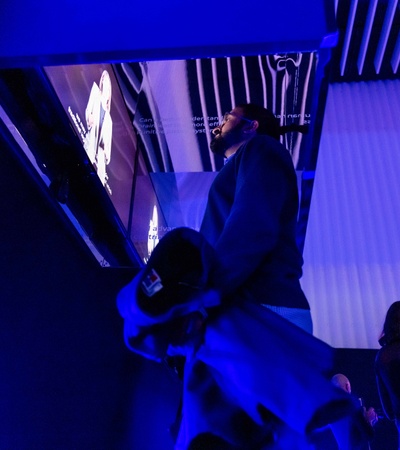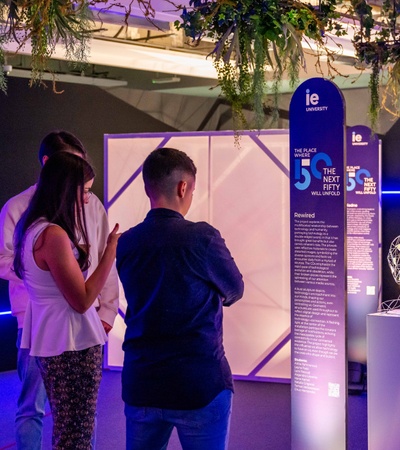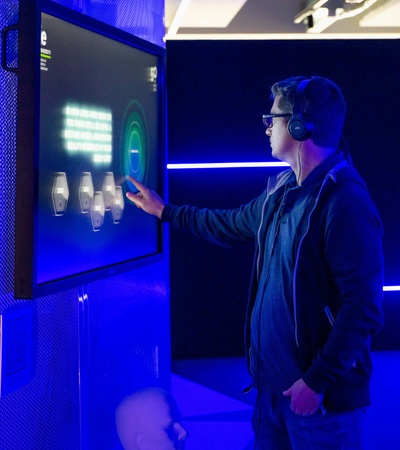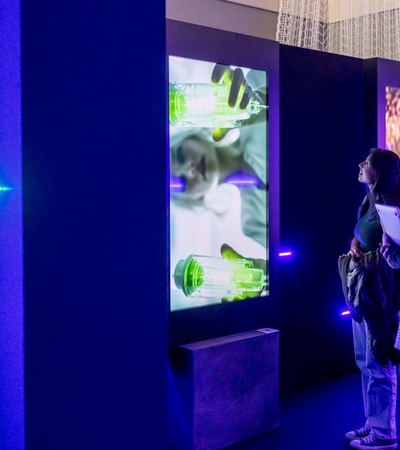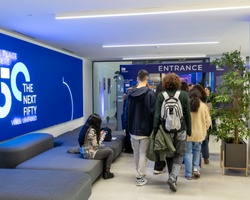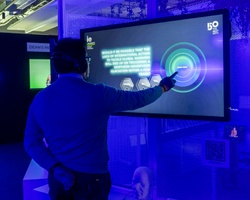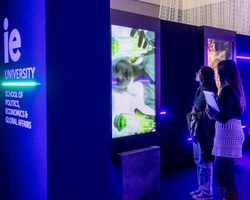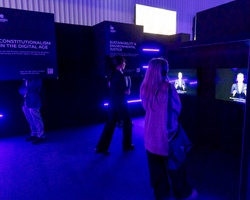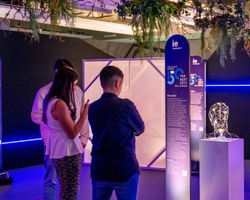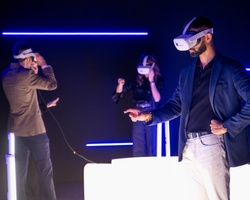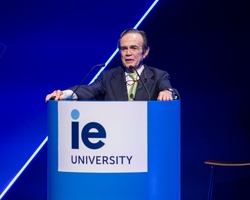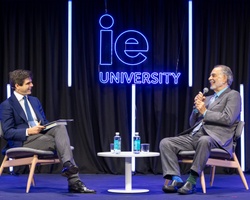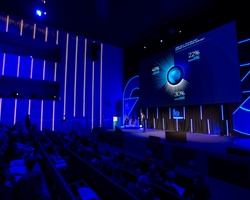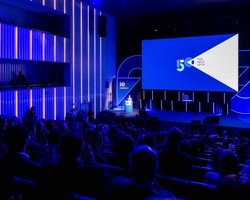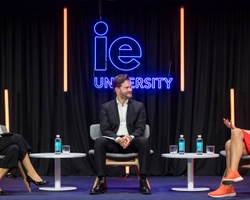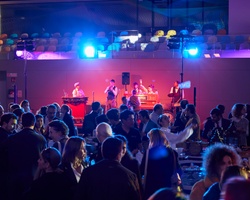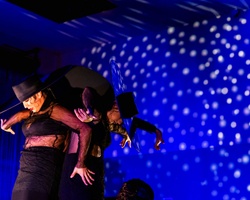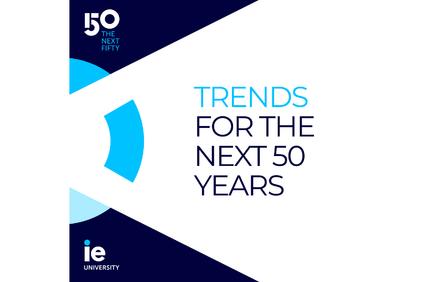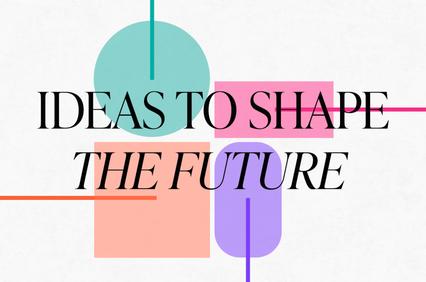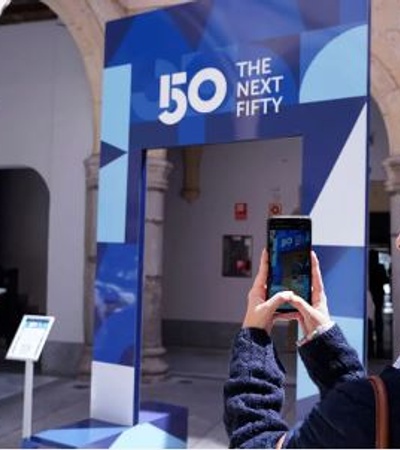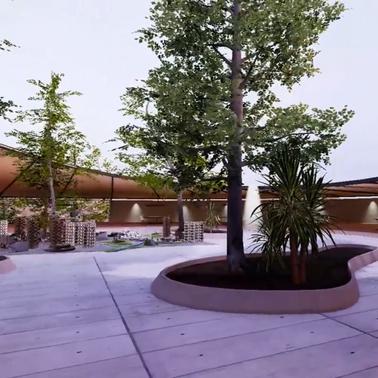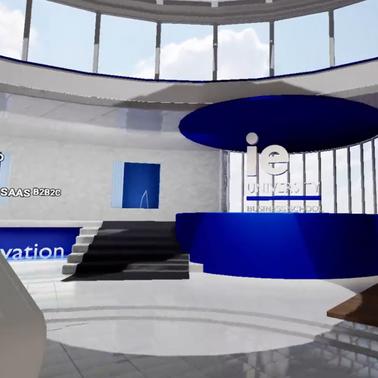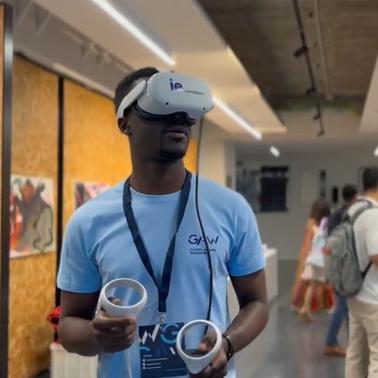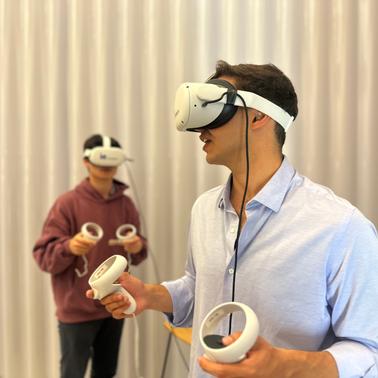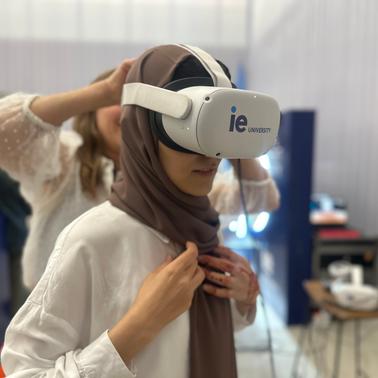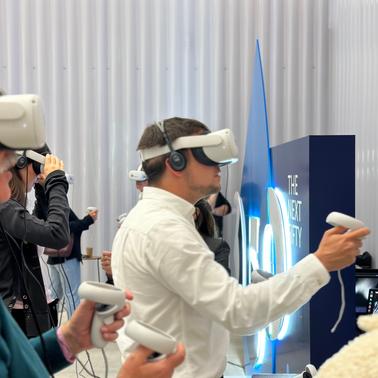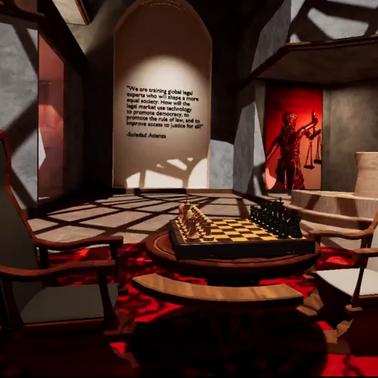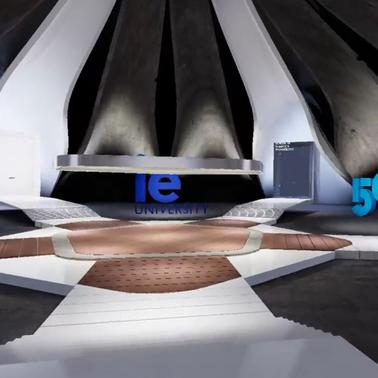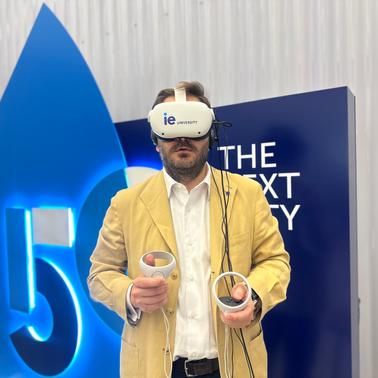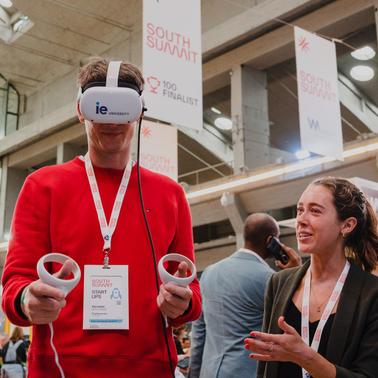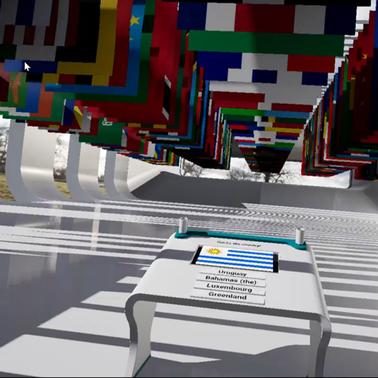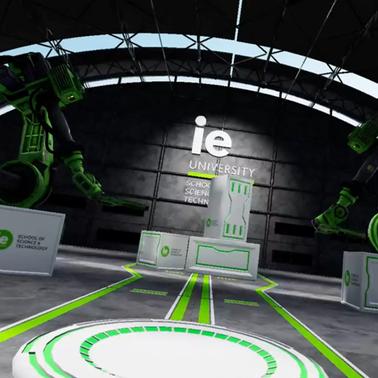- Home
- The Next Fifty
The Next FIFTY
The Next FIFTY
How will education evolve over the next 50 years?
One thing’s for sure: the desire to learn is what makes us human. Like light, our quest for knowledge illuminates, propels us forwards, and constantly seeks new spaces to fill. At IE University, we believe that the future of learning is based on enlightenment, and will no longer be limited by structures, borders and barriers.
Our goal is to empower future generations to build a brighter tomorrow by preparing them for change. We value innovation not only in technology but through the humanities, social connection, and sustainability. We envision a future where education integrates the latest technological advancements and creates a positive impact on society and the environment through collaboration, empathy, and social responsibility.
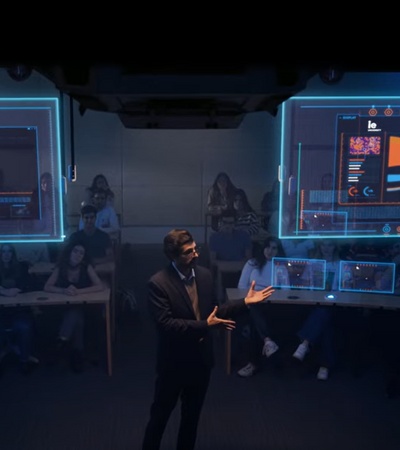
THE EXHIBITION AND GRAND FINALE
THE EXHIBITION AND GRAND FINALE
A memorable day unfolding the next 50 years
On November 14th, the IE Tower Campus experienced a stunning transformation, embracing The Next 50.
The -4 floor was converted into a museum, with each corner housing a unique exhibition. The five IE University schools had designated areas, presenting their distinctive visions for the world in the upcoming 50 years through interactive experiences that engaged over 600 attendees from the IE community.
The highlight of the evening was the institutional event and the presence of legendary filmmaker Francis Ford Coppola, who shared his perspectives on the future. The event also marked the launch of the School of Humanities, a significant milestone for the institution.
Relive The Next 50 exhibition! Explore interactive displays showcasing future visions from the 5 IE University schools and check out the recap video.
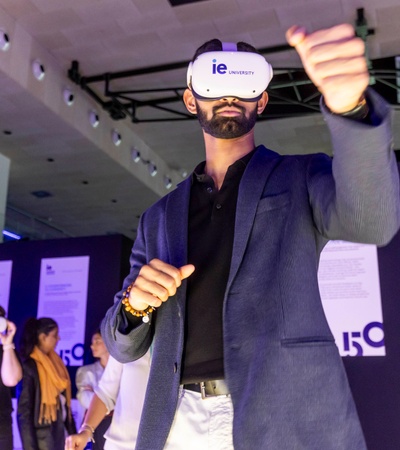
Business School
In the next 50 years we will see a major disruption in the world of work. Here we imagine one possible scenario driven by six transformational forces. Our mission is to spark your curiosity – and perhaps also concern – about how our working lives might evolve. Why? Because as leaders, managers and aspiring business professionals let’s not forget that together we have the ability to shape this future and to prepare ourselves to thrive in it.
THE FUTURE OF EDUCATION
THE FUTURE OF EDUCATION
Where knowledge becomes a catalyst for change.
HOW DO WE IMAGINE THE NEXT 50 YEARS?
HOW DO WE IMAGINE THE NEXT 50 YEARS?
TRENDS FOR THE NEXT 50 YEARS
TRENDS FOR THE NEXT 50 YEARS
In this foresight report, we asked 8,000 citizens from G20 countries and 15 experts to imagine what the future will look like in the next 50 years amidst a landscape of unrelenting technological change. As we navigate the profound impacts of this transformation across geopolitical, economic, environmental, and social spheres, the need for strategic foresight becomes clear. Emerging and disruptive technologies are redefining political power, societal prosperity, and planetary sustainability, while also casting shadows of uncertainty over employment, wealth distribution, and climate health.
The report emphasizes the need to enhance human skills and Humanities education to ensure we are the owners of AI's evolution, not the other way around. It serves as a call to action for organizations, states, companies, and individuals to augment their foresight capabilities, ensuring that the silent technological revolutions foster prosperity for all.
This is not just a narrative of what is to come but an invitation to co-create the next 50 years with informed, inclusive, and inspired action.
IDEAS TO SHAPE THE FUTURE
IDEAS TO SHAPE THE FUTURE
As part of IE University's 'The Next 50' initiative, IE Insights has invited experts from a wide variety of fields to comment on what they expect – in some cases, dare to hope for – in the coming decades.
The series is designed to help us imagine and understand our collective future on the planet and as part of society and tackle issues such as how education will change, how we will communicate, lead, and build business, our priorities in regards to global governance, diversity, sustainability, technology, as well as how we might address economic, political, and social challenges.
The Next 50 through the year
The Next 50 through the year
Immersing the IE community into the spirit of the future.
A PORTAL TO THE ERAS
A PORTAL TO THE ERAS
Reflect on the past, understand the present, prepare for the future.
Have you seen the portals that have appeared on our three campuses? Step into the eras that have most shaped the world of education throughout the years – and imagine what learning might look like in The Next Fifty. From the Stone Age to the Industrial Revolution, discover each era’s classroom and the role the instructor played in it. Then, join us in imagining the future – a place where the best of innovation and humanity comes together to create a dynamic environment where learning knows no boundaries.
Ready to travel through time? Just scan the QR code that you will see below the portals to get into the different eras. Bon voyage!
A PORTAL TO THE ERAS
The AR portals provide a journey with five levels: the Stone Age, Ancient History, the Renaissance, the Industrial Revolution, and the future, through which IE University students, professors, and staff can discover what the classroom was like in each era and recognize the key role of the professor.
THE STONE AGE
Cave dwellers knew much more than pitching fires and painting cave walls. In this era of education, we saw the birth of agriculture, and this intricate knowledge would be passed down from older mentors to the younger generation.
ANCIENT HISTORY
This era of education, with hubs in Greece, Rome, Egypt, and China, saw the first beginnings of philosophy, writing, and accounting, among other areas of learning. Who knew these works would still be influencing how we think today?
THE RENAISSANCE
A turning point in education, here we see a focus on science and the humanities, with intellectuals specializing in a wide range of subjects. Think: Da Vinci, Erasmus, Descartes, Shakespeare... Here, our educators also begin to teach in a more secular way.
THE INDUSTRIAL REVOLUTION
Education is finally accessible to the masses – including women – and the public begins to perceive it more as a practical tool than an artistic pursuit. There is a focus on mass production of textiles, energy, and telecommunication.
THE NEXT FIFTY
Everything has led to this. Every new thought, discovery, invention, and innovation has brought us to where we are today and will be in the next fifty years. Whatever the future holds, we are ready to embrace it with open arms. Are you?
VR Experience
VR Experience
Throughout this year, we have taken the virtual reality experience to various key events such as Open House, Parents Weekend, GAW, South Summit, Graduations, and IE Day. The purpose has been to share the essence of The Next 50 with different audiences within the IE community. Through virtual reality goggles, participants have explored futuristic representations of each school, engaging in unique interactions with these innovative visions.
